"Every single day in South Africa at least two to three captive bred or tame lions are being killed in canned hunts. And hundreds more are slaughtered annually for the lion bone trade.
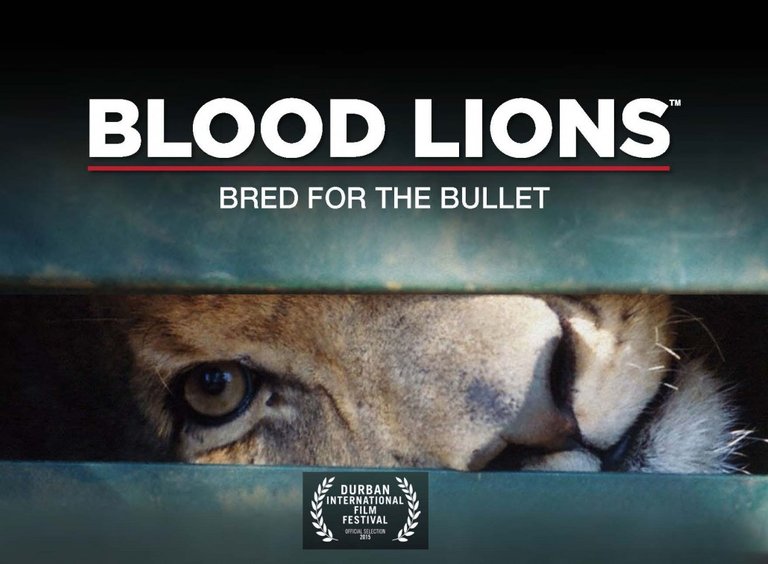
(Blood Lions cover picture)
The Blood Lions story is a compelling call to action to have these practices stopped"
In South Africa there are somewhere in the range of 10,000 lions and the numbers are expanding constantly. A protection achievement some may assert. In any case, the lie behind this measurement is uncovered in the way that South Africa is the main lion run range that has three separate arrangements for these extraordinary felines: captive, managed and wild. Thus we locate that only 3,000 – less than a third – are genuinely wild and living in assigned protection territories.
The rest, 7,000 or somewhere in the vicinity, live on private ranches, for the most part in little swarmed camps where their social structure is crushed, also their genetic line. The main reason, in spite of rather frail endeavors to legitimize the movement as conservation based or 'scientific,' is to breed them.
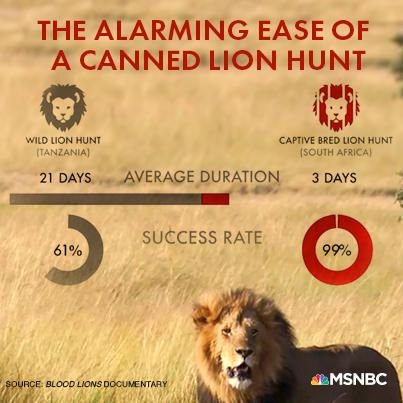
Cubs are extraordinary drawcards for guests particularly on the off chance that they can pet them. Somewhat more established, they give a hurry to guests who pay to stroll with them in the veld. Lastly as they develop into the superbness of adulthood, with streaming manes and appearances unblemished, they wind up nice looking targets for trophy seekers. Hundreds more are butchered and dispatched toward the East for the expanding lion bone exchange.
This, generally, is the hostage lion rearing industry and its indistinguishable result: canned lion hunting. It is a negative and exceptionally profitable specialty industry in South Africa and appreciates an effective lobbying in high places. It is likewise upheld by an apparently unquenchable interest for these ensured chases, especially from Europe and North America.
Hostage rearing conditions
Untamed life campaigner Ian Michler has been uncovering the mercilessness of the business and requiring its death for over 15 years. Blood Lions takes after his story, yet in addition draws on the perceptions of some of Africa's most regarded ecotourism and preservation identities.
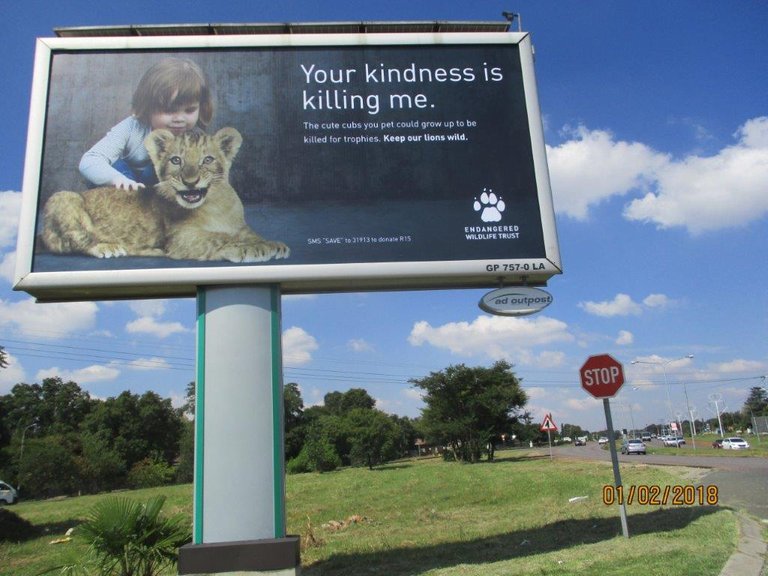
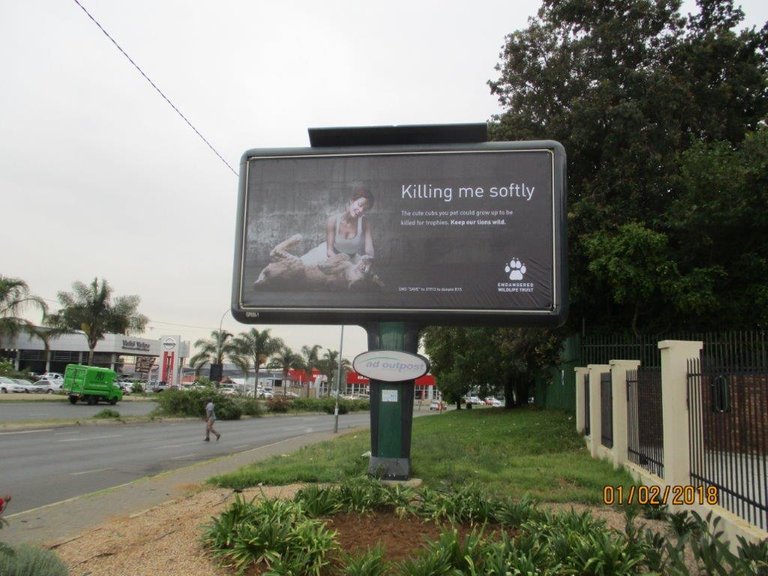
(Billboards in Johannesburg)
(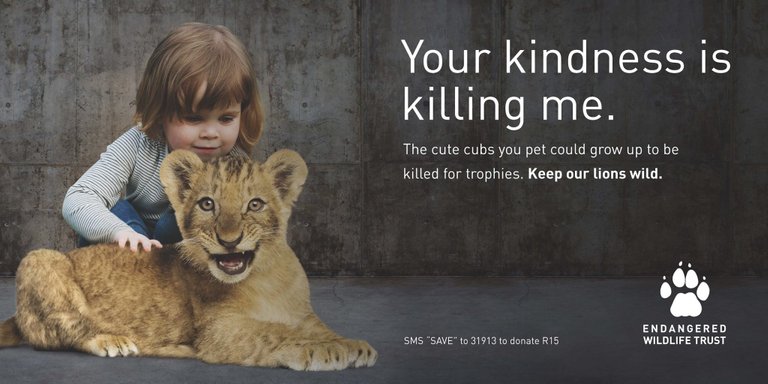 )
)
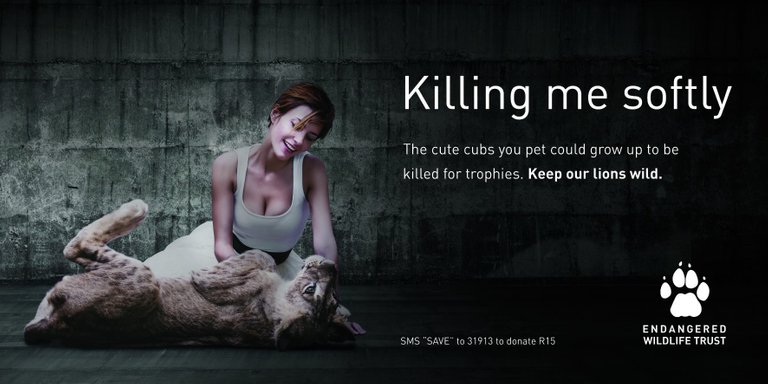
(campaign by the Endangered Wildlife Trust)
If you happen to visit a country that has cub petting, please dont engage or spend your money on these fake conservation efforts!